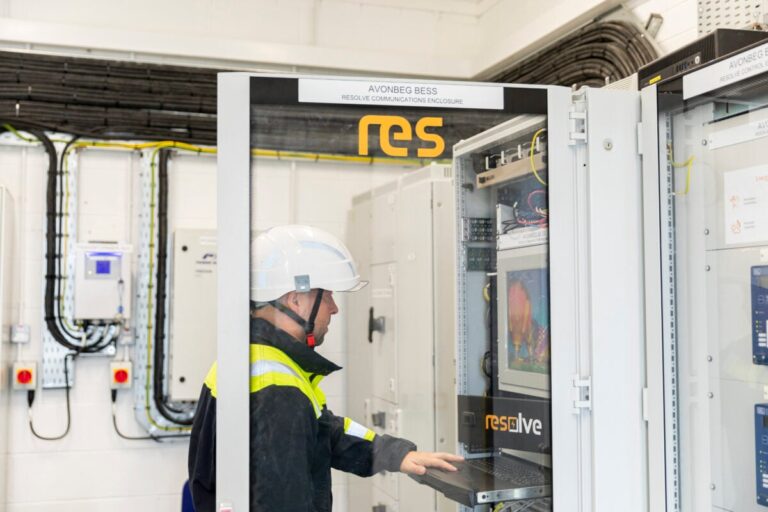Renewable energy developer RES has submitted a planning proposal for a battery energy storage system (BESS) project south-east of Newbuildings, County Derry.
The proposal is expected to go before Derry City and Strabane District Council’s planning committee in the coming months and, if approved, will take approximately 12 months to complete.
According to the planning documents, approximately 64 battery storage enclosures will be installed, providing a maximum capacity of 50 MW. The Killymallaght BESS will be located 500 meters northwest of the substation where it is expected to connect, and the development will cover an area of approximately 3.88 hectares.
Detailed site surveys have been carried out for Killymallaght, as well as pre-application consultation, to ensure that any impact on the environment, landscape, heritage and local residents is minimised.
According to Peter Deeney, project manager for RES development, a key point raised during the local consultation was the importance of site screening. In addition, concerns about food security were raised during the planning process, as the area that will be built on is currently used for livestock grazing.
Deeney said: “In reality, climate change is one of the biggest risks to food security; energy storage systems such as Killymallaght can enable and accelerate the rollout of renewable energy, directly addressing the effects of climate change.”
Glasgow-based RES has developed more than 700 MW of energy storage projects in Britain and Ireland to date and currently manages more than 600 MW of operational storage projects. In 2024, it started planning work on several BESS projects, as well as promoting the development of solar power plants.
In September, permission was refused for the proposed 49.9MW storage project in Devon, as locals argued there was too much development in the area and feared the risk of fire. This is despite the fact that neither Natural England, the Environment Agency nor the local fire brigade had any objections to the proposals.
The role of storage
The importance of energy storage in the electrification process was recently proven when the Moyle interconnector failed while transmitting 442 MW of power from Great Britain to Ireland on September 30.
As Statkraft explained in a post on its website, systems on both sides of the interconnector could be activated in a split second to stabilize the UK and Irish electricity grids.
BESS is often mentioned in connection with curtailment, as a means to prevent the UK’s National Grid from switching off paying generators when too much energy puts pressure on the transmission network. However, as a group of developers recently pointed out in an open letter, the ESO consistently underuses batteries in its efforts to tackle energy oversupply.
However, the UK government is increasing its involvement in the storage sector. On October 10, it confirmed it would introduce a new support scheme, in the form of a cap-and-floor mechanismto “remove barriers that have prevented the construction of new storage capacity for nearly 40 years.”


